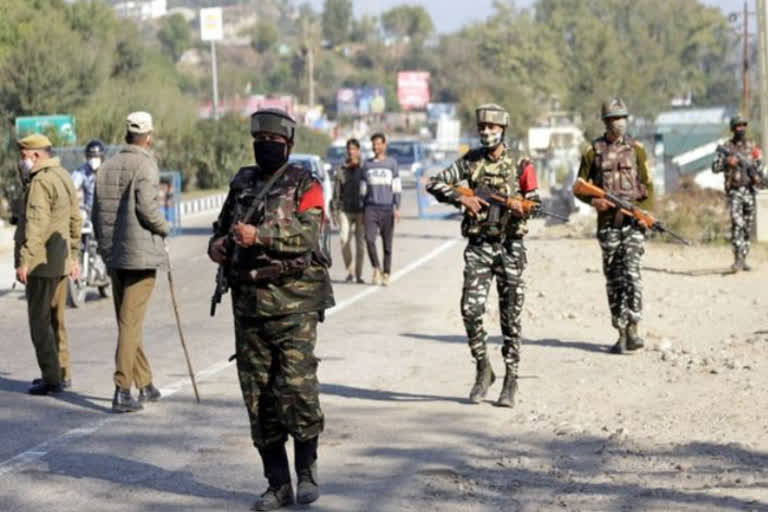New Delhi: In the aftermath of the tragic killings of 14 civilians by the Army on Saturday in Nagaland’s Mon district leading to a massive public outpouring of grief and anger, the controversial Armed Forces (Special Power) Act, 1958 (AFSPA) has become the rallying point for Nagas in particular and other northeastern states in general even as a raft of questions about the December 4 operation remain unanswered.
On Tuesday morning, besides calling off the ‘Hornbill Festival’, the chief minister Neiphiu Rio-led Nagaland state cabinet passed a resolution to strongly recommend the repeal of the AFSPA which many say is draconian as it enables security forces to shoot at sight and arrest anybody without a warrant in disturbed areas of the Northeast and Kashmir.
On Monday, Meghalaya CM Conrad Sangma had tweeted “AFSPA should be repealed”.
Both Rio’s Nationalist Democratic Progressive Party (NDPP) and Sangma’s National People's Party (NPP) are allies of the BJP.
While the leaderships of the other Northeast states are yet to formulate a position, civil society at large—including Assam MLA Akhil Gogoi—have voiced support for the repeal of AFSPA even as solidarity calls have come in from many organizations across the region.
“AFSPA has led to a climate of impunity where one cannot raise a finger of accusation against the security forces and where the killed is always the accused,” says Babloo Loitongbam, executive director of the Imphal-based Human Rights Alert, who has documented in detail 1,528 custodial killings by security forces in Manipur between 1979-2012.
While a Special Investigation Team (SIT) has been set up to investigate the incident, several questions remain.
Against the government’s position of the incident being a case of mistaken identity, the Nagaland Police in its preliminary report has stated that the civilians were ambushed and killed at random “apparently without any attempt for identification.”
Read: Former MoS Home Jitendra Singh calls Nagaland killings 'complete intelligence failure'
While the counter-insurgency operation was conducted by the Jorhat-headquartered 21 Para Special Forces (SF) unit on Saturday afternoon on December 4, 2021, near Oting village in Nagaland’s Mon district, about 35 km from the state’s border with Assam, it is not known on whose information the unit had planned the ambush.
Usually, SF units act on specific intelligence information provided by its controlling corps HQ—which is the Dimapur-based 3 Corps of the Indian Army in this case—or by other intelligence agencies like the Intelligence Bureau (IB) or Research and Analysis Wing (RAW). On getting the information, a team of 25-30 para-commandos are dispatched usually under a Major-ranked officer.
Insurgents in the Northeast states are not known to travel together in the open back of a pick-up truck driving on the main highway in a region where forests abound.
There is an unspoken law in Nagaland that insurgent operations do not take place in December as it is a month of festivities in Christian-dominated Nagaland besides the ongoing Hornbill festival which is a big draw for the tourism and hospitality sector of the state. The sector has unfortunately been reeling for the past few years because of the region-wide protests against the Citizenship Amendment legislation as well as the coronavirus pandemic.
If the government effort in Nagaland is to win the battle for the hearts and minds, Saturday’s mowing down of at least 14 innocent youths is a setback of huge proportions to that effort.
With the protracted talks on the Naga issue yet to provide even the contours of a resolution after 24 years, there is the danger of the sense of frustration giving rise to anger in the backdrop of the killings and buttressing the potent insurgency movement.
In the next few days, the least that the government can do to assuage the deep sense of grief and angst is to swiftly complete the investigation and bring the incident to its logical conclusion.



